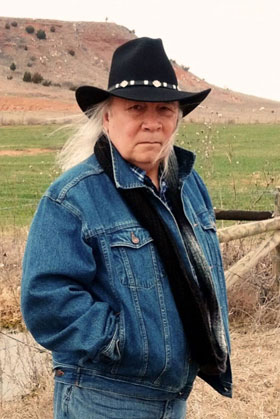
Native Americans can help today’s world find answers to the most urgent problems, according to the Rt. Rev. Steven Charleston, a Native American theologian and writer who teaches at United Methodist-related Saint Paul School of Theology at Oklahoma City University.
Charleston pointed to two issues that he calls “urgent matters of global survival.”
The first, he said, is the global need for community.
“In this generation,” Charleston said, “we are asking ourselves, ‘Can we still be a community even when we do not agree?’ From cultures around the world, there comes an answer. ‘No! If you do not agree with our way of life, then we have no need of you. In fact, we will enter into armed conflict with you.’”
Charleston said Native American core teachings offer a very different answer. “Yes, we can learn to live together in community without the need of an imposed conformity in belief or expression. Human beings can be creative spirits. They can look at the world around them and possess their own vision, their own understanding, and share that with others and continue to be a cohesive and respectful community.”
Environmental issues are another area in which Native American core teachings can help the global community, Charleston said.
Serving as bishop of the Episcopal Church in Alaska, he saw environmental change occur at an increasingly rapid rate.
“I saw firsthand dramatic changes in the Alaskan environment because of global warming,” Charleston said. “It is beyond question in my mind, and it is a new reality that confronts the whole of humanity.
“This is our island home. If we do not take care of it and if we do not treat it with respect, then we make those choices at our peril. Native American tradition brings us a way to live in harmony and balance with the natural world, and defines strategies for families and communities to make a living, but to do so in a way that does not damage the environment in which we live.”
“Preserving tradition and ensuring that future generations have access to this relevant knowledge from our Native communities is important to United Methodist-related institutions,” said Gerald D. Lord, a United Methodist Board of Higher Education and Ministry staff executive. “We support and applaud our institutions such as Saint Paul School of Theology for working with the Native community and providing a forum to share these valuable ideas.”
Core teaching of the Native America community, Charleston said, can help us find ways to live in harmony with ourselves and with nature.
“Those are among the great gifts I believe Native Americans have to offer humankind.”
*Bowdon, former communications director for the Oklahoma Annual (regional) Conference, is a freelance writer.
Like what you're reading? Support the ministry of UM News! Your support ensures the latest denominational news, dynamic stories and informative articles will continue to connect our global community. Make a tax-deductible donation at ResourceUMC.org/GiveUMCom.



